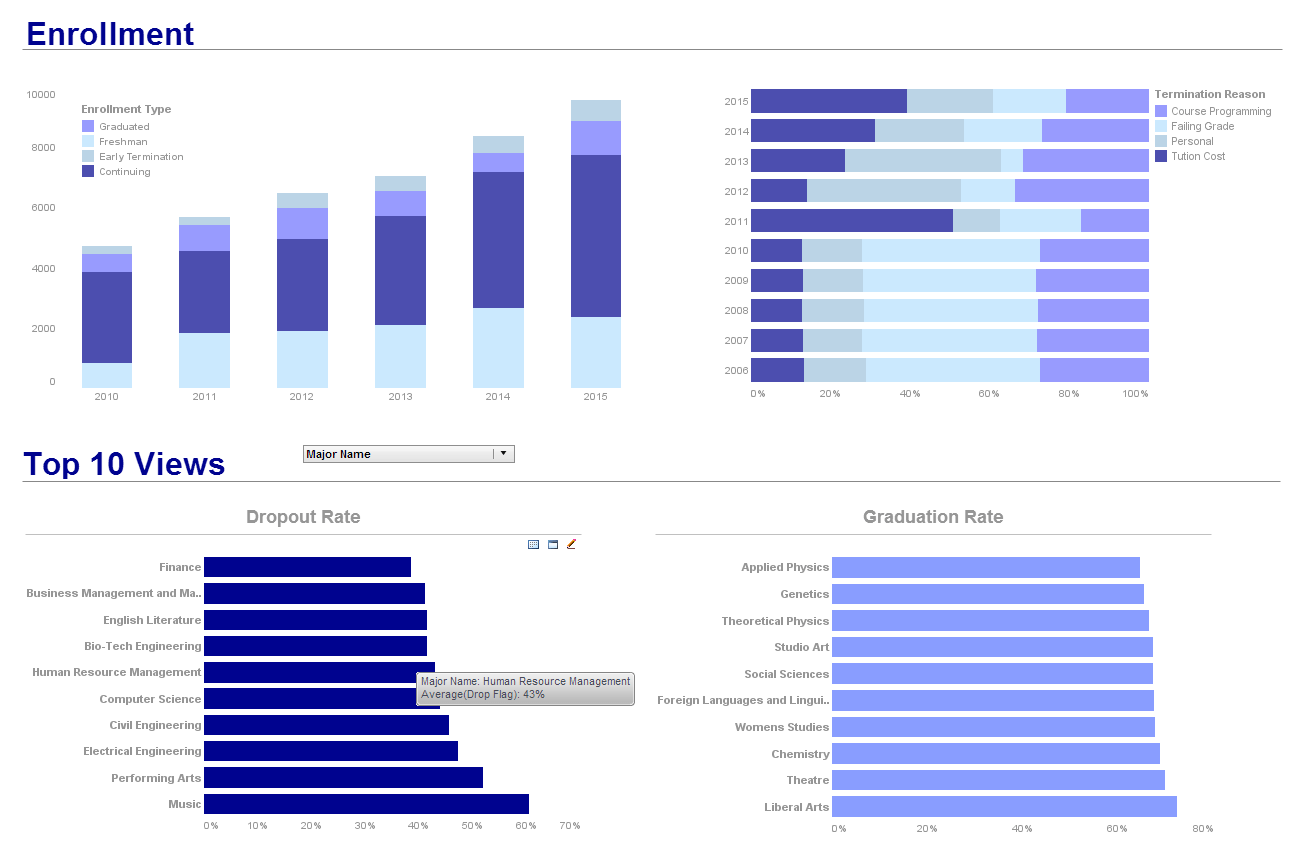The Context Behind the Business Intelligence Reports
This is the continuation of the transcript of a Webinar hosted by InetSoft on the topic of "An Explanation of Business Intelligence." The speaker is Abhishek Gupta, product manager at InetSoft.
So you have got to understand the context behind the business intelligence reports, the trends, the context behind the numbers so that you can either prepare for success or prevent failure. Identifying trends in quality control, is your marketing working? Are you getting more people to sign up? One problem in marketing is you can generate a lot of interest. A lot of people come, and they sign up, but they're not buying. Generally that tells you that you were targeting the wrong groups. You have got to figure out where and why and understand the context behind the numbers.
Defining organization goals, you are monitoring the change within the organization. Your company wants to react to changes, right. If the economy is tanking you might need to start monitoring your customers and monitoring your pricing. We need to look at what our competitors are doing. We also want to cause change by changing buying habits or interrupting people who weren’t looking for this particular product, but now we're going to do some interruptive marketing and make them actually be interested in purchasing this product or maybe new features or new pricing.
This isn't about business intelligence, right, but that's what a company wants to do. Business intelligence, though, is getting that information in the right people’s hands in a way that they can understand, that lets them understand the data quickly. So we have to allow management to be able to make the right changes. We have to give them the information that allows them to have confidence in those decisions, and we have to help them understand what changes are having the most ROI at least ROI, what needs to get cut, what needs to survive, that's what business intelligence is all about.
Context Behind Business Intelligence Reports
We want to react to change and cause change as a company, as an organization. To do that we need great reporting, and that's what our business intelligence system is all about. So the best companies put more money into projects with a better ROI, and they kill all the projects that have little to no ROI. Business intelligence simply helps you do that.
There are a couple of final things here. If you’re a small company guy you might learn it first just from your own gut feeling. I think this works. That’s what I am going to do. And it works. I’ll tell you that if you are the right kind of person in the right market, it works. Small companies can be run by gut decisions. It worked for me in the past. I'm going to keep doing that all right. This worked for my friend Kevin. He's in a similar industry so I'm going to try it for my company.
The decisions at the small company level aren’t always made based on the analysis of lots and lots of numbers. A lot of times they're thinking this'll work. They are based on a feeling, right, but when you get into the larger companies, the CEO’s, the management, the VPs, they have to have buy-in. You have to convince the board members, the investor or investors, or your other managers. You have to get buy-in from people. You can't just go based on gut feeling. Now you have to dig into the numbers, you have to do trend analysis, data mining. That’s business intelligence, okay. That's what it's all about.
Now before we end I just have to warn you. Business intelligence, it's just a big term, right? It covers a lot of ground. You have got to be wary of vendors who overuse the term. I could give you examples of certain companies who will say that they use business intelligence and data warehouses, and it's really not anything more than putting lipstick on a pig. They've just taken some ugly implementation and added a few fancy reports to it, and now they call it business intelligence. They call it a data warehouse, and you know that’s not really it. So just beware when somebody starts throwing too many terms about BI and data warehousing, where they don't seem to fit, you just have got to be careful out there.
Where does the saying "putting lipstick on a pig" come from?
The saying “putting lipstick on a pig” is an American idiom that means trying to make something unattractive, undesirable, or fundamentally flawed appear appealing or acceptable, usually through superficial or cosmetic changes. While the exact origin is hard to pinpoint, the metaphor draws on the absurdity of applying makeup—typically a human beautification product—to a pig, an animal traditionally associated with messiness and a lack of refinement. The implication is that no matter how much you dress something up, its underlying nature remains unchanged.
This expression seems to have emerged in American English in the mid-to-late 20th century, although related sentiments and phrases go back even further. One of the earliest documented uses of the exact phrase appears in the 1980s, but similar sayings were floating around earlier. For instance, there are records of politicians and journalists in the 1950s and '60s using comparable imagery, and versions of it have appeared in business and political rhetoric for decades. A 1985 article in The Washington Post attributes the phrase to then-Governor Edwin Edwards of Louisiana.
Linguistically and culturally, the idiom has gained traction because it’s vividly humorous and succinctly expresses a common human behavior: trying to disguise a problem rather than fix it. It’s widely used in politics, marketing, and management to criticize hollow rebranding or surface-level improvements that ignore deeper issues.

